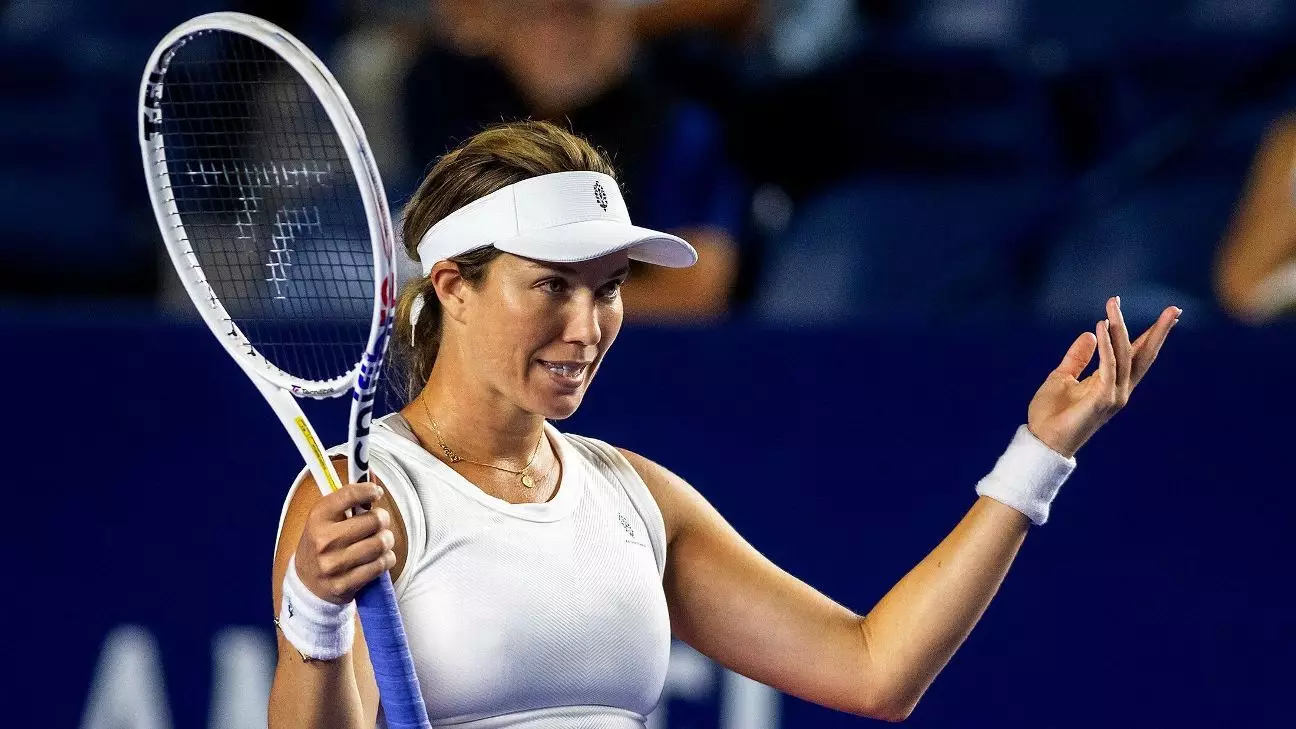On a recent Thursday, tennis sensation Danielle Collins made headlines with her decision to extend her career on the WTA Tour, a revelation that comes as a striking contrast to her earlier announcement about retirement. Previously, Collins had declared that the 2024 season would mark the end of her professional career, primarily driven by personal aspirations to start a family. However, as she grapples with the complexities of her health issues—specifically endometriosis—her plans have evidently evolved. In her candid Instagram post, Collins shared her reflections on the unanticipated hurdles she has faced and how those have spurred her to re-evaluate her goals.
Collins, currently ranked as the world’s No. 9, expressed her desire to continue competing despite her struggles. This decision underscores her determination and highlights a broader conversation surrounding the impact of health on the lives of female athletes. Many women in sports encounter similar obstacles that complicate their professional ambitions alongside personal dreams, and Collins’s situation sheds light on this often-overlooked reality.
Endometriosis, a debilitating reproductive health condition affecting millions of women, significantly shapes Collins’s journey. In her post, she openly acknowledged the immense emotional and physical toll linked to managing this condition while pursuing her tennis career. The athlete’s transparency about her struggles is refreshing, as it challenges the stigma associated with women’s health issues, particularly in high-pressure environments such as professional sports.
For Collins, navigating the complexities of her health has been an educational experience. As she works with specialists to better understand her options for starting a family, the ongoing battle serves not only as a personal challenge but as a compelling narrative of resilience in the face of adversity. Her story is a powerful reminder of the inner strengths many women harness to balance their professional ambitions with personal dreams, reflecting society’s changing perceptions of both femininity and athleticism.
The shift in Collins’s plans encapsulates a broader theme seen in the sports world: the notion of agency in retirement decisions. Collins had initially stated her intention to retire on her own terms, wanting to leave while her performance was at its peak. After achieving remarkable success at prestigious tournaments, including a title at the Miami Open, her competitive spirit was rejuvenated, compelling her to reconsider her anticipated retirement.
Her determination echoes through her words as she describes how she plans to channel the momentum gained during the 2024 season into her upcoming competitions. This willingness to adapt her plans reflects not only a tenacity essential for elite athletes but also an invaluable lesson in flexibility and resilience for anyone facing life’s unpredictable nature.
Many athletes face the difficult task of choosing between personal aspirations and professional commitments. Collins’s story illuminates this ongoing struggle for many women in sports, particularly those wishing to become mothers. Her decision to extend her career resonates deeply with those who navigate similar choices in their own lives, especially as she dares to share the often-hidden aspects of fertility challenges that accompany endometriosis.
In her reflections, Collins pointed out the possibility of uncertainty in her journey but emphasized a hopeful outlook as she continues to build upon her legacy. By retaking her position on the tour, she has not only renewed her commitment to tennis but also reinforced her belief in the possibility of pursuing motherhood while maintaining a vibrant sporting career.
As Collins prepares for her anticipated return to the court in 2025, excitement fills the air. Her announcement to participate in the United Cup in Australia signifies enthusiasm for engaging with the sport she loves, while acknowledging that the future remains uncertain. This duality of anticipation and apprehension paints a vivid picture of the challenges that drive her narrative.
In a world that often prioritizes immediate success and clear-cut accomplishments, Collins embodies the journey of persistence and hope. Her story, a tapestry woven with threads of struggle, determination, and growth, not only inspires aspiring athletes but also instigates a broader conversation about the intersection of health, femininity, and professional sports. As she prepares to step back into the arena, uniquely poised between personal dreams and professional fulfillment, Collins continues to redefine what it means to be both a competitive athlete and a hopeful mother.

